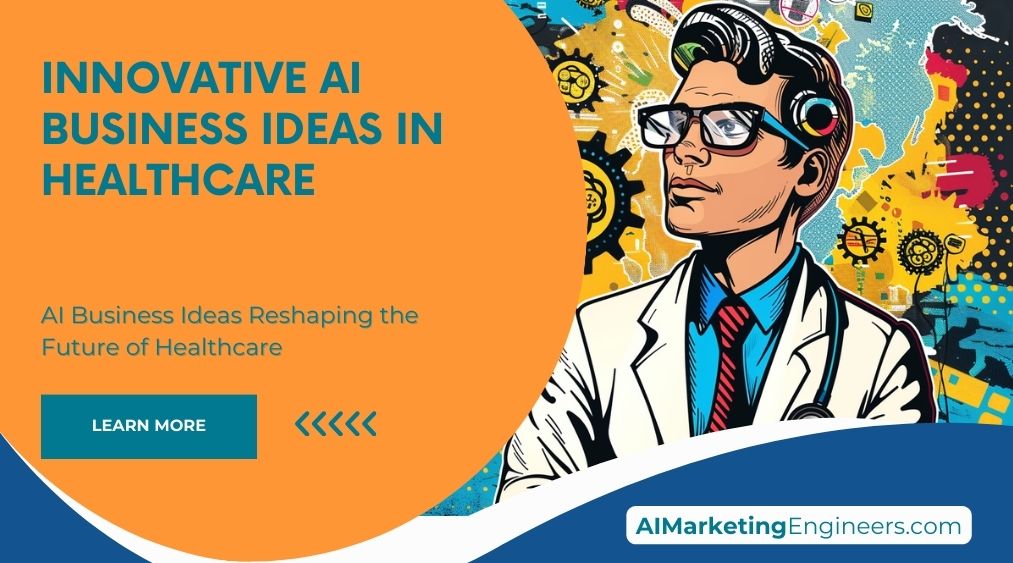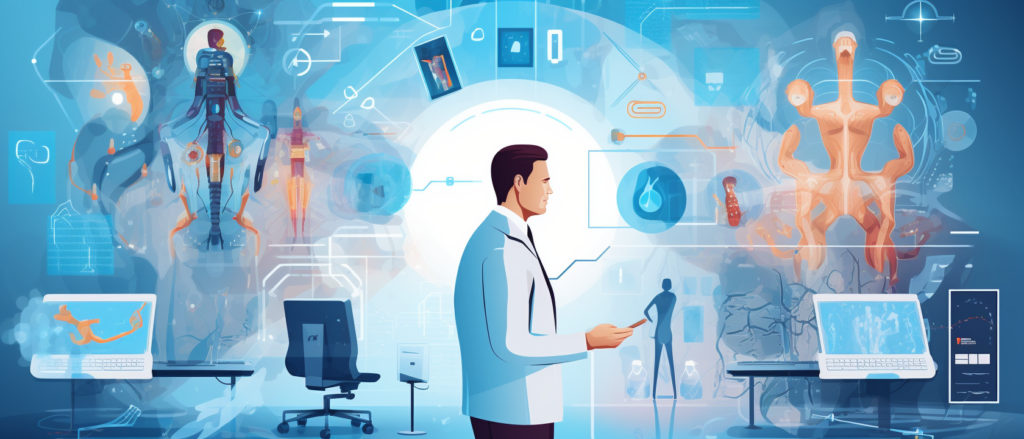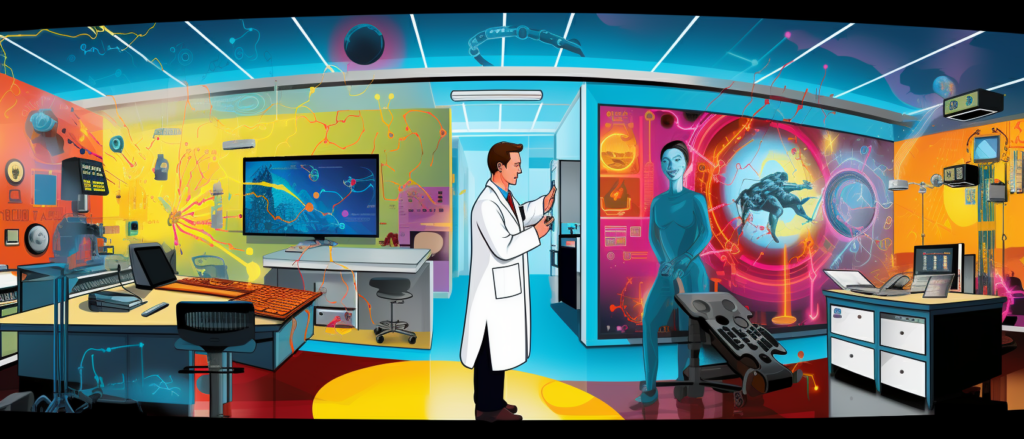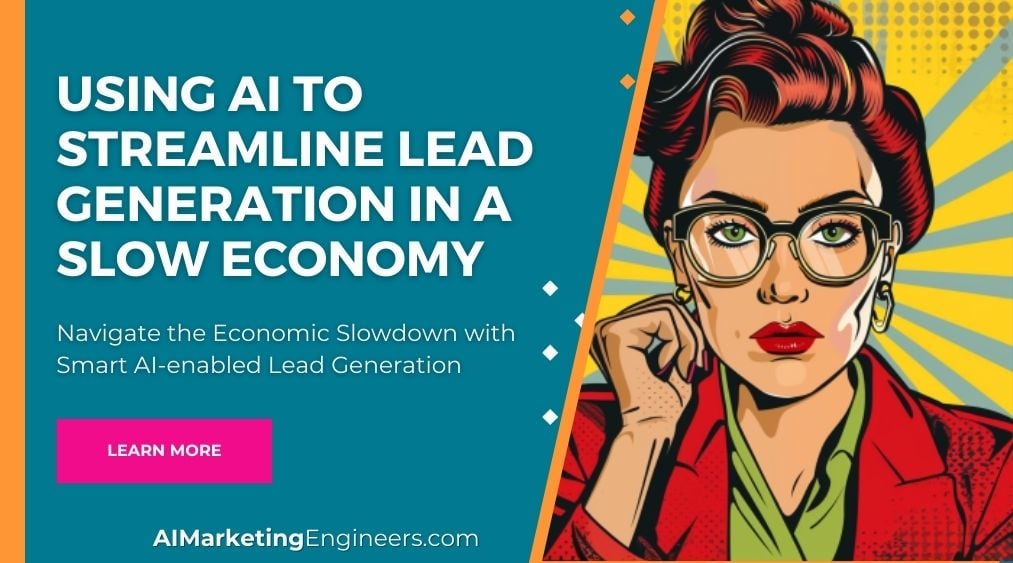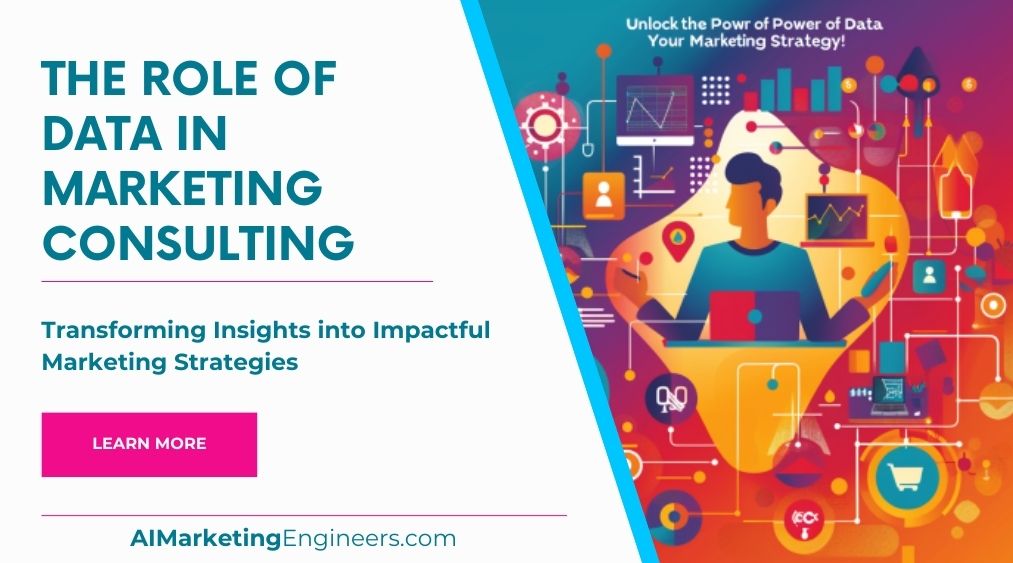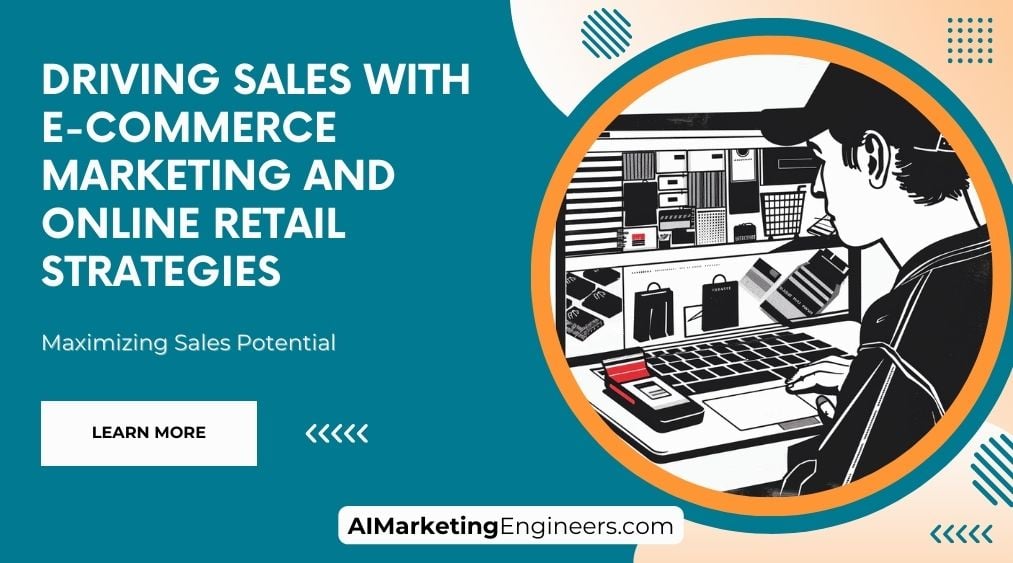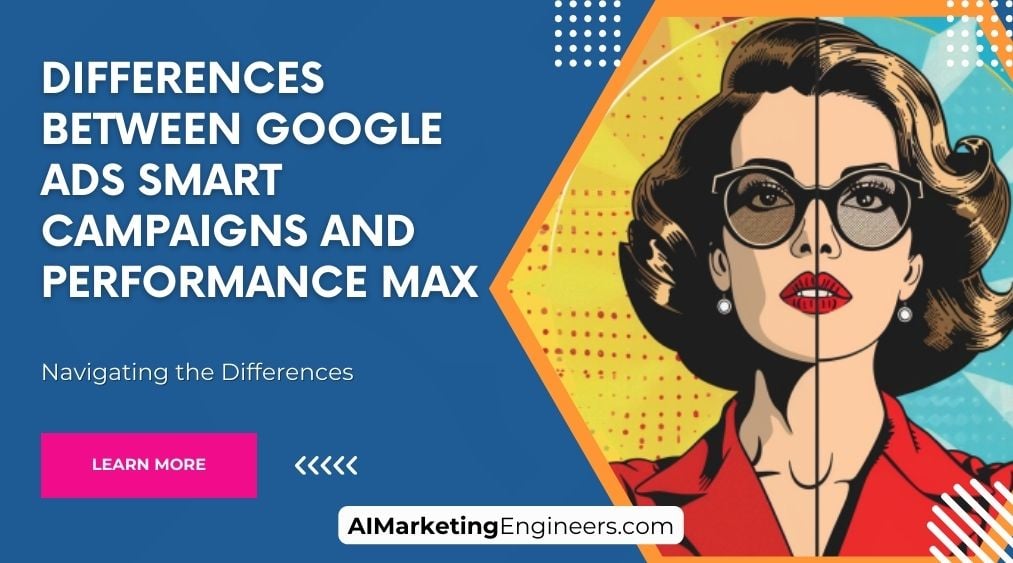Key Takeaways
✅ Personalized Medicine: Imagine a world where your medical treatment is designed just for you. That's what AI is doing in healthcare – analyzing your unique data to concoct treatment plans that are as unique as your fingerprint. This isn't some sci-fi fantasy; it's real, and it saves lives and cuts costs too.
✅ Medical Imaging and Diagnostics: Picture a computer that can look at an X-ray and spot trouble faster and more accurately than the human eye. AI is making this a reality, turning images into a crystal ball that can predict health issues before they become serious problems.
✅ Virtual Assistants and Telemedicine: Ever wished you could have a doctor on call 24/7? AI is bringing that to life, giving you health advice, saving you trips to the doctor, and making sure those in far-flung areas get the care they need. A chat with a virtual assistant could be your first step in managing your health.
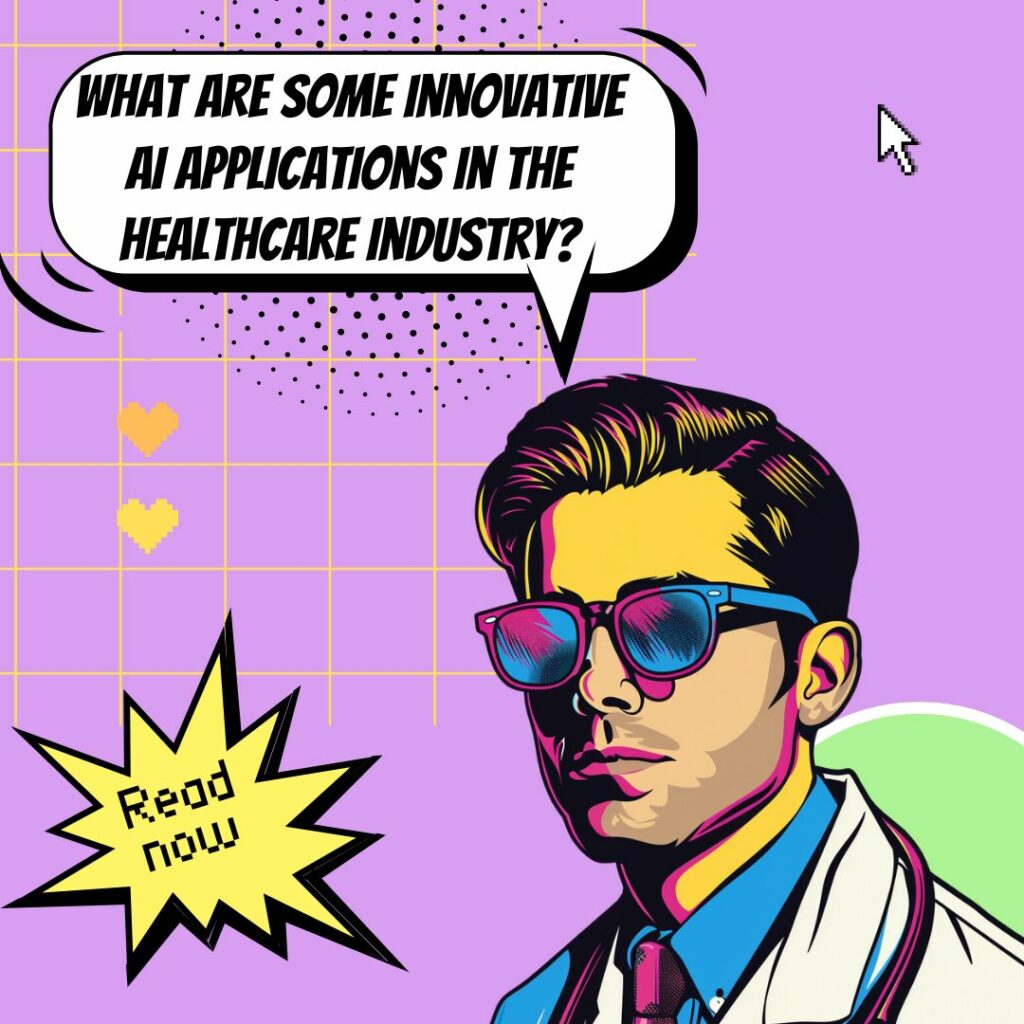
Introduction
Ever stopped to think about how a handy little smartphone app might save someone's life one day? It's not just wishful thinking anymore – innovative AI business ideas in healthcare are making that a reality every day, offering solutions that seemed far-fetched not long ago. In this fast-paced digital world, medicine isn't just about stethoscopes and blood pressure cuffs. It's about AI-driven diagnostics, deep learning, and big data, all coming together to give us healthcare that's so personalized, it's like it's tailored just for you.
And there's more – we've got savvy startups turning the healthcare industry on its head, making once complex processes as simple as using your phone to order a pizza. We'll look at companies zooming past the status quo with personalized medicine, others breaking new ground in drug discovery, and some bringing doctor's appointments to your living room with telemedicine.
Curious yet? Stay tuned. We're about to unfold a treasure map leading to actionable insights and information that could very well spark an idea, revolutionize a business, or maybe even change the healthcare industry as we know it. Absolutely, let's jump into these statistics and make sense of the numbers behind AI in healthcare, shall we? Imagine you're at a crossroads, looking at the path healthcare is taking towards innovation. On one side, there's tradition, the known and comfortable. On the other, a high-speed highway paved with revolutionary AI technology beckoning us forward. Ever wondered just how fast we're going down this new path?
Top Statistics
| Statistic | Insight |
|---|---|
| Global AI Healthcare Market Growth: Expected to hit $67.4 billion by 2027, with a CAGR of 41.8%. (Source: Grand View Research) | These numbers aren't just impressive, they're a thunderous wake-up call that AI isn't just knocking on healthcare's door – it's blowing it wide open. The growth rate here underscores a massive transformation as healthcare providers leap onto the AI bandwagon. |
| Healthcare Provider Adoption: 42% have already adopted AI tools, 51% plan to soon. (Source: Accenture) | More than just a fad, AI in healthcare is quickly becoming the norm. As providers increasingly embrace these tools, patients could soon see a dramatic shift in how their care is managed. |
| AI in Medical Imaging: Expected to grow at a 36% CAGR between 2021 and 2028. (Source: Fortune Business Insights) | Peering inside the human body with greater precision and insight could soon become standard, thanks to AI's growing role in imaging. Imagine quicker diagnoses and personalized treatment plans becoming the new normal. |
| AI-based Drug Discovery Market: Projected to reach $4.5 billion by 2026, a 40.8% CAGR. (Source: Markets and Markets) | This statistic is huge – it suggests that the medications of tomorrow are being crafted today with the help of AI. The market potential for life-saving drugs is not only expanding, it's accelerating. |
| AI-based Virtual Nursing Assistants: Expected to grow at a 31.5% CAGR by 2028. (Source: Fortune Business Insights) | Could virtual nursing assistants become your new health ally? This trend suggests that AI healthcare help could become a part of many patients' daily routines, aiding in everything from medication reminders to symptom checking. |
AI-Powered Diagnostics: Accurate and Efficient Diagnoses
Picture walking into a clinic and getting a diagnosis that's fast, precise, and early enough to really make a difference. That's the hope riding on AI-driven diagnostic tools. These high-tech helpers, leveraging AI, scan through medical images like X-rays, CT scans, and MRIs with a keener eye than ever before. Have you heard of startups like Zebra Medical Vision? They're making waves by spotting diseases with the kind of accuracy that even seasoned professionals applaud. It's not just a cool tech upgrade; it's giving people some of their confidence back when they need it the most.
Personalized Medicine: Tailored Treatment Plans for Patients
Now, imagine stepping into a future where your treatment plan is designed just for you. That's the promise of personalized medicine, courtesy of AI crunching numbers and sifting through data. It tailors the treatment to suit you down to the molecular level, based on your unique genetic makeup. Startups in this realm, like Tempus, are changing the game. They're helping doctors dial in on the best treatments, potentially side-stepping the days of one-size-fits-all medicine and truly meeting individual patient needs.
Drug Discovery and Development
The hunt for new medications is like looking for a needle in a haystack. Here's where AI is more like a giant magnet. It can analyze reams of data at breakneck speeds to spot potential drug candidates much faster than humans. This speed means companies like Atomwise are bringing new hope to patients waiting on breakthrough treatments. It's not just about getting drugs to market quicker; it's about making sure the wait for potentially life-saving medication isn't a second longer than it needs to be.
Improving Patient Engagement and Accessibility
Have you ever wanted a health buddy, available any time, who knows your health inside out? Virtual health assistants powered by AI might just be your answer. They're becoming the go-to for round-the-clock health advice and assistance. These AI companions are there when you need them, offering a helping hand through your health journey. Companies like Ada Health are at the forefront, making healthcare feel more personal and immediately accessible, which is something we've all found ourselves wishing for at some point.
Continuous Monitoring and Early Disease Detection
What if wearing a watch could help keep you out of the hospital? AI-enabled wearable devices are keeping an eye on your vitals and watching for signs of trouble. This isn't sci-fi—it's technology like Fitbit that's becoming part of daily life, aiming to catch health issues before they escalate. It's like having a guardian angel on your wrist, giving you and your doctors a heads-up, potentially saving lives with early detection. And in the health world, early detection can often be the key to beating the odds.
In this article, we've explored a future that's quickly becoming today's reality: AI in healthcare is transforming how we diagnose, treat, and even prevent illness. With AI, the hopes of patients and providers for better, faster, and more personalized healthcare are not just on the horizon; they're here, opening up new possibilities and addressing some of our deepest health fears. Are we ready to embrace this change? Well, that's the question we all have to ponder as we watch these innovations unfold and redefine our healthcare experience.
AI Marketing Engineers Recommendation
Recommendation 1: Invest in Personalized Healthcare Platforms: Businesses should consider creating AI-driven personalized healthcare platforms. By analyzing data from electronic health records, wearables, and other sources, these platforms can offer tailored health recommendations. For instance, an AI system that learns a person's unique health patterns can predict potential issues before they become serious. Companies like KenSci are already making waves by using machine learning to predict patient risks. By jumping on this trend, businesses can tap into the ever-growing demand for bespoke healthcare services.
Recommendation 2: Enhance Patient Engagement with AI Chatbots: Improve patient care and optimize workflow by incorporating AI-powered chatbots into your healthcare services. Chatbots can manage appointments, provide routine health tips, and even assist with symptom checking, acting as a first line of support. This doesn't mean replacing human interaction but enhancing it by freeing up time for healthcare professionals to focus on what they do best—caring for patients. AI chatbots like Babylon Health's symptom checker have shown increased patient engagement and satisfaction. They are not just a trend; they're establishing a new standard in patient communication.
Recommendation 3: Leverage Predictive Analytics for Better Health Outcomes: Utilize predictive analytics for proactive healthcare. AI systems that analyze vast datasets can forecast disease outbreaks or identify patients at risk of chronic diseases, leading to timely interventions and appropriate allocation of resources. This approach is shown to save costs and lives by preventing complications through early detection. For instance, the predictive analytics tools developed by ClosedLoop.ai have proven beneficial in identifying at-risk patients. It’s not just about crunching numbers; it’s about taking action to improve health outcomes and possibly save lives. Would you be willing to invest in technology that could not only predict the future but also help change it for the better?
Relevant Links
Boost Your Diagnosis Game with AI: The Future of Medical Imaging
AI-powered tools are revolutionizing healthcare
Personalized Medicine Revolution: The AI Difference
Tailor your treatment with AI's Personalized Medicine
Drug Discovery and AI: The New Power Couple in Medicine
Discover faster, better with AI's help in drug development
24/7 Health Support: Your Virtual Health Assistant Awaits
Meet your new AI Health Buddy, anytime, anywhere
The Lifesaving Potential of Wearable AI Technology
Wear your health on your wrist with AI technology
Conclusion
Let's step back and think: isn't it mesmerizing how artificial intelligence is not just a buzzword but a genuine lifesaver in healthcare? We've had a good look at the marvels it's pulling off; AI-powered diagnostics are no less than superheroes, spotting what the human eye sometimes misses. And imagine a world where the medicine you take is as unique as you are—that's the promise of personalized medicine.
Remember those days when developing new drugs felt like waiting for a bus that never comes? With AI, it's as if someone paved a super-highway, accelerating the journey from lab to lives saved. And in this world that never stops, virtual health assistants and high-tech wearable devices are like vigilant guardians, keeping an eye on our health round the clock. They don't replace doctors, no, but they sure stretch their capabilities.
Now, I bet you've wondered how trustworthy these AI systems can be. It's natural to feel a bit of unease when machines seem to take the wheel on something as critical as our health. But the successes we're seeing are laying a strong foundation of trust and hope, and with every advancement, that future where AI is a standard part of your healthcare doesn't seem so far away anymore.
As we wrap this up, I can't help but ask: what's next? How can we continue to refine these innovative AI business ideas in healthcare to ensure they reach their full potential and truly make a difference? There's no denying there are challenges ahead, but the journey—the lives improved, the costs cut, the outcomes enhanced—is an exciting prospect for anyone invested in a healthier world.
FAQs
Question 1: What is AI in healthcare, and how does it impact the industry?
Answer: AI in healthcare involves the use of algorithms and technologies to improve patient care and operations. It can lead to better health outcomes, more effective research, and smoother business functions. Imagine getting your medical diagnosis faster and more accurately, thanks to the wonders of AI.
Question 2: What are some successful AI-driven healthcare business ideas?
Answer: Think about robots that can help doctors diagnose diseases or virtual nurses that check on patients. AI has sparked many innovative ideas, like analyzing medical images, monitoring patient health remotely, and even designing new drugs. These are real game-changers.
Question 3: How can AI improve patient outcomes in healthcare?
Answer: AI boosts patient care by catching diseases early, tailoring treatment just for you, and cutting down on mistakes. Imagine a system that knows your health as well as you do and keeps you on track with your treatment. It's like having a high-tech health guardian.
Question 4: What are the challenges associated with implementing AI in healthcare?
Answer: It's not all smooth sailing. Bringing AI into healthcare faces hurdles like keeping your personal data safe, making different systems work together, and navigating a maze of rules. Plus, not everyone's ready to trust a machine with their health just yet.
Question 5: How can AI help reduce healthcare costs?
Answer: AI can be like a financial diet for healthcare, trimming down on admin work, avoiding costly errors, and steering clear of unnecessary treatments. It's about making healthcare leaner but just as effective.
Question 6: What are some best practices for developing AI-driven healthcare business ideas?
Answer: Want to build something in AI for healthcare? Start by really listening to doctors and patients, lock down your data security, stay on the right side of the law, and keep testing your AI to make sure it's spot on. It's serious tech that requires serious attention to detail.
Question 7: How can AI help address healthcare disparities and improve access to care?
Answer: AI might help bridge the health divide by bringing medical care to remote areas, crafting treatments that fit individual lives, spotting and reaching out to those at higher risk, and speeding things up in hospitals and clinics so everyone gets cared for faster.
Question 8: What are some key considerations for investing in AI-driven healthcare businesses?
Answer: Thinking about putting money into AI healthcare ventures? Look at the market's appetite, understand the rules, ensure strong data safeguards, and know what makes your investment stand out. You want to pick a winner that stands the test of time and changes lives.
Question 9: How can AI help with medical research and drug discovery?
Answer: AI is like a super-charged lab assistant, sifting through heaps of data for insights, guessing which drug candidates might hit the mark, speeding up human trials, and pinpointing new targets for treatments. It's bringing a new pace to how we find cures.
Question 10: What are some emerging trends and future developments in AI-driven healthcare?
Answer: The future's bright with AI that explains its own decisions, privacy-protecting data sharing, super-fast quantum computers, and health-tracking gadgets that could fit under your skin or on your wrist. These trends promise to redefine what we think is possible in health tech.
Academic References
- Topol, E. (2019). "Artificial Intelligence in Healthcare: Past, Present, and Future." Journal of the American Medical Association (JAMA), 321(19), 1951-1952. In this insightful article, Topol explores the evolution of artificial intelligence within the medical realm, shedding light on its capabilities in various sectors such as diagnosis, drug development, and the tailoring of treatment to the individual. The paper illustrates how AI has the potential to enhance patient care while simultaneously reducing the cost burden on healthcare systems.
- Jha, S., Topol, E., & Damania, D. (2019). "Artificial Intelligence in Healthcare: The Hope, the Hype, the Promise, the Peril." Journal of the American Medical Association (JAMA), 321(19), 1951. As AI's presence in healthcare grows, Jha and colleagues delve into the promise and the pitfalls it brings along. They discuss how AI could revolutionize accuracy and efficiency in patient care, but they don't shy away from the hard questions about privacy, bias, and potential misuse. It's a balanced look at a future that's almost here.
- Topol, E. (2019). "Artificial Intelligence in Medical Practice: The Question to Ask Is Not Whether It Will Replace Physicians, but Whether Physicians Will Learn to Work with It." PLOS Medicine. In this article, Topol offers a refreshing perspective on the integration of AI in medical practice. Instead of echoing fears about technology replacing human roles, Topol emphasizes the importance of symbiotic relationships between AI tools and healthcare professionals, ultimately enhancing patient outcomes.
- Davenport, T.H., & Kalakota, R. (2019). "The Potential for Artificial Intelligence in Healthcare: A Comprehensive Review." Journal of Clinical Medicine, 9(2), 474. Davenport and Kalakota provide a sweeping review of AI applications in healthcare, ranging from medical diagnostics to creating treatment plans. They dissect both the hurdles and prospects that AI poses, painting a picture of a technology on the cusp of revolutionizing health services.
- Chandra, A., Khullar, D., & Wilensky, G. R. (2019). "Artificial Intelligence in Healthcare: The Implications for Health Insurance." Journal of the American Medical Association (JAMA), 321(19), 1951. Through their research, Chandra and his co-authors unravel the complex implications AI could have on health insurance. From fine-tuning risk assessment to catching fraud and personalizing insurance offerings, they highlight the disruptive potential of AI, but also remain careful to address the looming challenges and opportunities.
